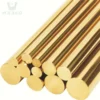Tool steel is available in various types, including carbon tool steel, alloy tool steel, high-speed tool steel, and powdered metal tool steel. Each type has its unique properties and is used in specific applications, depending on the desired properties required for the tool.
The demand for tool steel is growing steadily, and the market is highly competitive, with many tool steel suppliers worldwide. It is essential to choose a reputable tool steel supplier that can provide high-quality products consistently.
In this blog post, we will explore the properties, types, and applications of tool steel, as well as the grades and standards used to measure its quality. We will also discuss the importance of selecting the right tool steel for the job and maintaining it correctly to ensure its longevity and efficiency. By the end of this blog post, you will have a better understanding of tool steel and its importance in industrial manufacturing, as well as the critical role of tool steel suppliers in providing the industry with the materials it needs to produce high-quality tools.
Properties Of Tool Steel
Hardness
Tool steel is renowned for its exceptional hardness, which allows it to withstand high-impact and wear applications. The hardness of tool steel is typically measured on the Rockwell C scale, with higher numbers indicating greater hardness. Tool steel suppliers can produce tool steel with a wide range of hardness levels, depending on the desired application.
Toughness
In addition to its hardness and wear resistance, tool steel also possesses a high level of toughness, which enables it to withstand sudden shocks and impacts. Toughness is a critical property for tool steel used in applications such as dies and molds, where the material may be subject to sudden and severe stresses.
Wear Resistance
Tool steel is also known for its high level of wear resistance, which makes it ideal for applications that involve sliding or abrasive wear. The wear resistance of tool steel is influenced by factors such as the hardness, microstructure, and chemical composition of the material. Tool steel suppliers can modify these factors to produce tool steel with varying degrees of wear resistance.
Corrosion Resistance
Finally, tool steel is also known for its excellent corrosion resistance, which makes it ideal for use in harsh environments. The corrosion resistance of tool steel is influenced by the chemical composition of the material, with some grades of tool steel exhibiting greater resistance than others.
Types Of Tool Steel
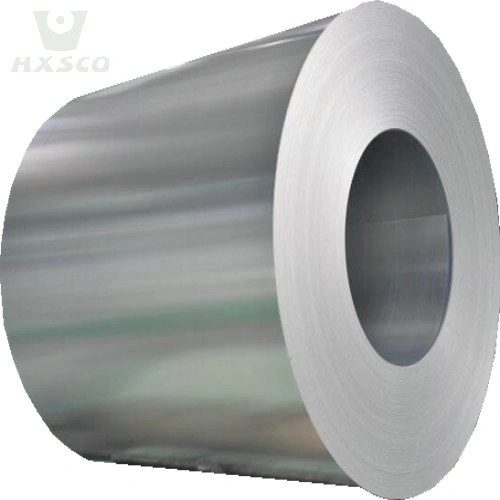
Brass Round Bar
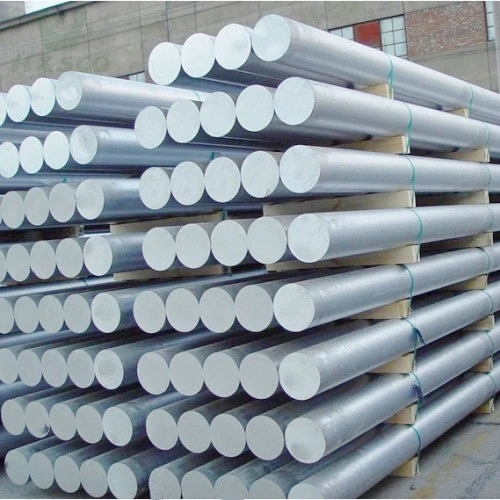
Brass Square Bar
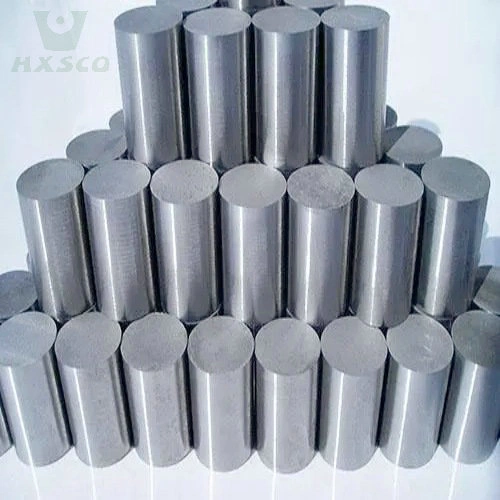
Brass Rectangle Bar
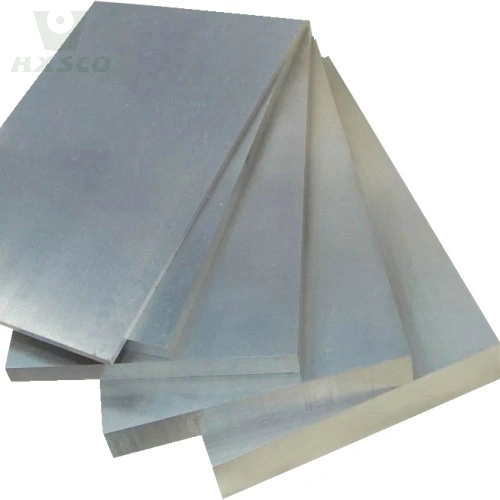
Brass Hexagon Bar
Tool steel is available in several different types, each with its unique properties and applications. The most common types of tool steel include carbon tool steel, alloy tool steel, high-speed tool steel, and powdered metal tool steel.
🔘Carbon Tool Steel:
Carbon tool steel is the oldest and most basic type of tool steel, consisting primarily of iron and carbon. This type of tool steel is known for its excellent toughness and wear resistance, but it has limited hardness and can be prone to rusting. Carbon tool steel is typically used in applications that require a high degree of toughness and resistance to wear, such as chisels and hand tools.
🔘🟡Alloy Tool Steel:
Alloy tool steel is a type of tool steel that contains additional alloying elements, such as chromium, vanadium, and tungsten, which improve its hardness, wear resistance, and toughness. This type of tool steel is commonly used in applications that require a high degree of wear resistance and toughness, such as cutting tools and dies.
🔘🟡🟠High-Speed Tool Steel:
High-speed tool steel is a type of tool steel that is specifically designed for high-speed machining applications, such as drilling and milling. This type of tool steel contains high levels of tungsten, molybdenum, and vanadium, which give it excellent hardness and wear resistance at high temperatures.
🔘🟡🟠Powdered Metal Tool Steel:
Powdered metal tool steel is a type of tool steel that is made by combining powdered metal with a binding agent and then sintering the mixture. This process produces a tool steel that is highly uniform and has excellent wear resistance, toughness, and corrosion resistance. Powdered metal tool steel is commonly used in high-performance cutting tools and dies.
Tool steel suppliers produce each of these types of tool steel to meet specific industry requirements. Professional tool steel suppliers HXSCO employ strict quality control procedures to ensure that our products possess the desired properties consistently. Selecting the right type of tool steel for a specific application is critical to producing high-quality tools that are durable and efficient.
Applications Of Tool Steel
Tool steel is used in a wide variety of applications due to its unique properties and ability to withstand high stress, wear, and deformation. The most common applications of tool steel include:
CUTTING TOOLS
Tool steel is commonly used in the manufacture of cutting tools such as drill bits, saw blades, and end mills. These tools require high hardness, toughness, and wear resistance to ensure efficient and long-lasting cutting performance.
DIES AND MOLDS
Tool steel is an ideal material for dies and molds used in metal stamping, forging, and casting operations. It provides high hardness and resistance to deformation, allowing it to maintain its shape under high pressure and temperature.
MACHINE COMPONENTS
Tool steel is frequently used in the manufacture of machine components such as gears, shafts, and bearings. These components require high strength, hardness, and wear resistance to withstand the constant stress and friction associated with machine operation.
AEROSPACE INDUSTRY
Tool steel is used extensively in the aerospace industry for manufacturing critical components such as turbine blades, landing gear, and engine parts. The high strength and heat resistance of tool steel make it an ideal material for these applications.
AUTOMOTIVE INDUSTRY
Tool steel is used in the automotive industry for manufacturing components such as gears, axles, and suspension parts. These components require high strength, toughness, and wear resistance to withstand the harsh operating conditions of automobiles.
Tool steel suppliers play a critical role in providing high-quality tool steel to industries that rely on its unique properties for efficient and safe operation. Tool steel suppliers HXSCO offer a wide range of tool steel grades and standards to meet specific industry requirements and ensure that their products meet strict quality control standards. In addition, we provide valuable technical support to assist customers in selecting the right type of tool steel for their applications.
In conclusion, tool steel is an essential material used in various industries due to its unique properties such as high strength, hardness, toughness, and wear resistance. Tool steel suppliers play a crucial role in providing high-quality materials to meet the demands of these industries and ensure the safe and efficient operation of their tools and components.
Tool Steel Selection And Maintenance
Application: The first step in selecting tool steel is to understand the application and the specific requirements for the tool. This includes factors such as the type of material being cut, the speed and feed rates, and the operating environment.
Tool steel properties: Different types of tool steel have unique properties that make them suitable for specific applications. For example, high-speed steel (HSS) is known for its ability to maintain its hardness at high temperatures, while cold-work tool steel is ideal for applications that require high wear resistance.
Cost: The cost of tool steel can vary significantly based on the type and grade. While high-performance tool steel may be more expensive, it can provide longer tool life and higher productivity, ultimately reducing overall costs.
Tool steel suppliers: Working with reputable tool steel suppliers is critical to ensuring the quality and consistency of the material. Look for suppliers with a proven track record of providing high-quality materials and excellent technical support.
Once you have selected the appropriate tool steel, proper maintenance is essential to ensure optimal performance and longevity. Here are some tips for maintaining tool steel:
Proper storage: Tool steel should be stored in a dry and clean environment to prevent rust and contamination.
Regular maintenance: Tools should be inspected regularly for signs of wear and damage, and any issues should be addressed promptly to prevent further damage.
Proper lubrication: Tool steel should be lubricated during use to reduce friction and wear.
Sharpening: Tools should be sharpened regularly to maintain their cutting performance and prolong their life.
By following these guidelines, you can ensure that your tool steel is properly selected and maintained, resulting in optimal performance, longer tool life, and ultimately, lower costs. Tool steel suppliers HXSCO can also provide valuable guidance and support in tool selection and maintenance, so don’t hesitate to reach out to us for assistance.
Choose Tool Steel Suppliers
Choosing the right tool steel suppliers is a critical step in ensuring the quality and performance of your tools. Here are some factors to consider when selecting tool steel suppliers:
Quality
Look for a supplier that provides high-quality tool steel that meets industry standards. The supplier should be able to provide documentation and certifications that validate the material’s chemical composition and properties.
Variety
Choose a supplier that offers a wide range of tool steel grades and forms to meet your specific needs. This can include various sizes, shapes, and finishes, as well as custom orders.
Experience
Consider a supplier with experience in the industry and a proven track record of providing quality products and services. Check their reputation and customer reviews to gauge their reliability and level of customer satisfaction.
Technical Support
Good tool steel suppliers should offer technical support and guidance to help you select the appropriate tool steel grade for your specific application. They should also be knowledgeable about the material’s handling and storage requirements to ensure optimal performance and longevity.
Delivery and Logistics
Consider a supplier that can provide timely and efficient delivery of your tool steel orders. This includes reliable shipping and logistics support to ensure that your materials arrive in good condition and on time.
Price
While cost is an important factor, it should not be the sole determining factor when selecting tool steel suppliers. Instead, look for a supplier that provides quality materials and reliable services at a reasonable price.
When working with tool steel suppliers, it’s essential to maintain open communication and establish a strong working relationship. This includes regular communication regarding your specific needs and requirements, as well as any concerns or issues that may arise.
Overall, selecting the right tool steel suppliers is critical to ensuring the quality and performance of your tools. By considering factors such as quality, variety, experience, technical support, delivery and logistics, and price, you can choose a supplier that meets your specific needs and provides reliable, high-quality tool steel materials.
Conclusion
Tool steel is a critical material used in a wide range of industrial applications. It offers high hardness, wear resistance, and toughness, making it ideal for cutting, shaping, and forming various materials. Proper tool steel selection and maintenance are critical to ensure optimal performance and longevity, as well as reducing costs associated with tool replacement and repair.
When selecting tool steel, it is essential to consider factors such as the application, tool steel properties, cost, and tool steel suppliers. Reputable tool steel suppliers can provide valuable guidance and support in tool selection and maintenance, helping you to select the appropriate material and ensure proper care and maintenance.
In addition to proper tool steel selection and maintenance, it is also essential to consider the environmental impact of using tool steel. Choosing tool steel suppliers that prioritize sustainability and environmental responsibility can help minimize the impact of your operations on the environment.
In conclusion, tool steel is a critical material that plays a vital role in various industrial applications. Proper tool steel selection, maintenance, and environmental responsibility are key to ensuring optimal performance, reducing costs, and minimizing the impact on the environment. By working with reputable tool steel suppliers and following best practices for tool steel selection and maintenance, you can ensure that your operations run smoothly and efficiently, and that you are doing your part to protect the environment.




